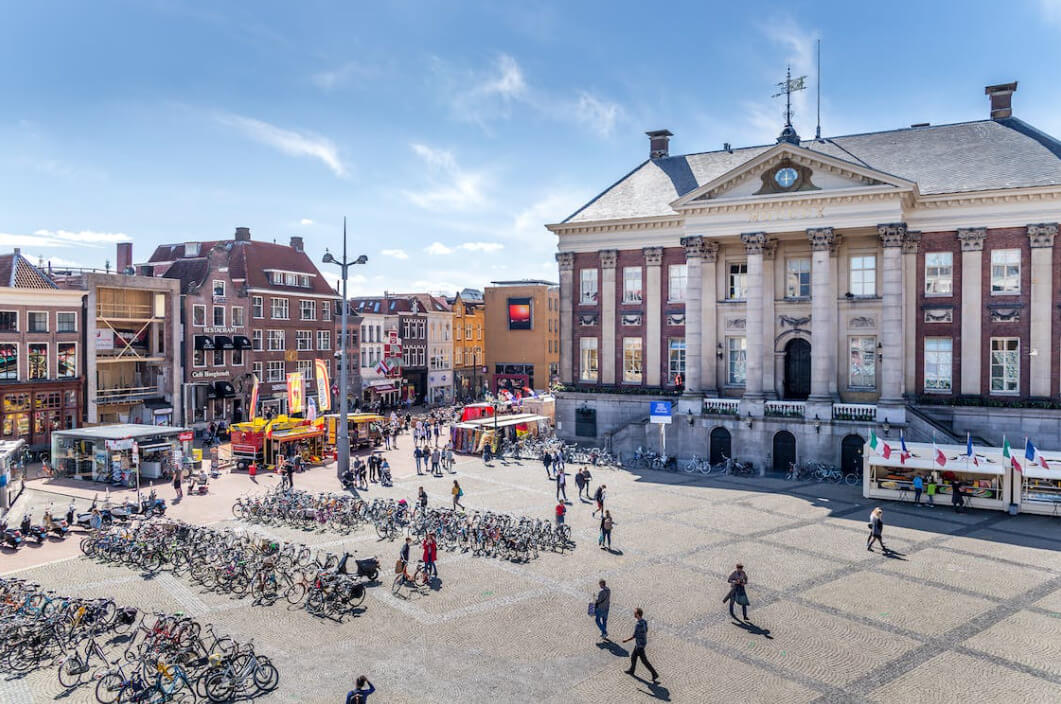If you want to hire internationals, make sure your company culture fits – Klippa CEO
Founded in 2015, Klippa aims to digitise and automate administrative processes with modern technology. A great part of that includes the use of machine learning and optical character recognition (OCR). Klippa currently has an international team of over 70 people, with offices in Groningen, Amsterdam, Hamburg, and Brasov.

The CEO of Klippa, Yeelen Knegtering, sat down with Make it in the North to discuss internationalisation within his growing AI company.
Founded in 2015, Klippa aims to digitise and automate administrative processes with modern technology. A great part of that includes the use of machine learning and optical character recognition (OCR). Klippa currently has an international team of over 70 people, with offices in Groningen, Amsterdam, Hamburg, and Brasov.
Can you tell us a bit about yourself and the company?
So I’m the CEO of a company called Klippa. We make software to automate administrative work – basically, the work that people have to do for tax and legal reasons that they don’t necessarily enjoy doing we automate for them.
How did the company start?
I used to work as a consultant at a different company. Over there administrative work was plentiful. I thought there was a better way to do that. So I offered to automate it for them and they liked my pitch. They said yes. That’s how we started.
When did Klippa start hiring internationals?
So we started in 2016 and in 2019 we started going abroad. From that point onwards we needed internationals, so 2019.
Did you experience any challenges in the beginning?
Many internationals often come to the North of the Netherlands to study. Many of them probably don’t envision actually starting their careers in Groningen. So you have to find the ones that are here to build their lives for the next 10 years or so. So finding these kinds of people is really important for us.
What do you think makes internationals want to work at Klippa?
Half our team is international. So if you like collaborating with Dutch people and also with other internationals I think you’ll find a nice mix here. We also see that a lot of internationals are very ambitious. And I think that fits very well with the scale-up because we want to grow by 100% every year. If you want to achieve that you also need to be very ambitious.
How do internationals help you?
If you want to grow towards other countries you have to know other languages and cultures. Some may think Europe is one unified place but it’s not really the case. So when you want to do business in a different country you need local knowledge and for us that was very important to have people who are native German, French, or Spanish speakers. It helps us from a language perspective but also from a cultural perspective.
We do business in 35 countries, but mainly in the DACH region – Germany, Austria, and Switzerland.
Are internationals who studied in the Netherlands as competent as the locally grown workforce?
I’d say both groups have similar capabilities. There are of course cultural differences and language differences but in our case our main language with clients and internally is English anyways. So speaking Dutch is almost never a strict requirement.
And for those internationals who studied abroad?
I’d say the hardest part is understanding how good a person is because the grading systems differ from country to country. One education system isn’t necessarily better than the other – they’re just different.
Do you hire internationals from outside the EU?
Klippa is a registered IND sponsor. So we can do that. It’s a little more complicated and is a more time-consuming process so for many companies it’s not the preferred option, but we do have this option for the right talent.
Integration of internationals in your team: Do you put in a conscious effort or do you let it happen naturally?
We have an onboarding process for both Dutch and international people. We put a lot of emphasis on culture and people. And we think culture is very important because in general, it determines how you operate as a company. And we say that work should be more than just work. So you can go to any company from 9 to 5 and just do your work. But if you're an international especially, there's also more of a need to network. A local network. So making friends and getting to know people in the country and having a culture that does more than work.
I think the Dutch and international people intertwine together exactly the same as the Dutch people do with each other.
Do your Dutch colleagues feel comfortable speaking English?
In our company, you have to speak English because our clients are also English. So even if we did not have international colleagues, you would still have to speak English at least with our clients.
Our general communication internally is in English, our client communication is either English, German, or French. We place our vacancies in both Dutch and English.
What’s your message to companies thinking about hiring internationals?
If you want to start hiring internationals, you have to make sure that your company culture also fits. So you have to adapt to speaking English in groups and create company documentation in English. These things are important. If an English speaker finds everything in Dutch it’s going to be harder for them to feel at home and harder for them to be successful.
If your company has international clients go for it. If you’re only working within the Netherlands then maybe hiring internationals is not a necessity. But it's very hard to find people so why not find English-speaking people?
Video: Julia Dumchenko
Interviewer: Annaléa Chatelier
The interview has been edited for brevity and clarity.






